Why Proper UPS Storage Matters for Remote Workers
For remote workers, an uninterruptible power supply (UPS) system is more than just a backup power solution—it’s essential insurance for your professional livelihood. But storing these critical power systems requires careful consideration and the right environment to ensure they’re ready when you need them most.
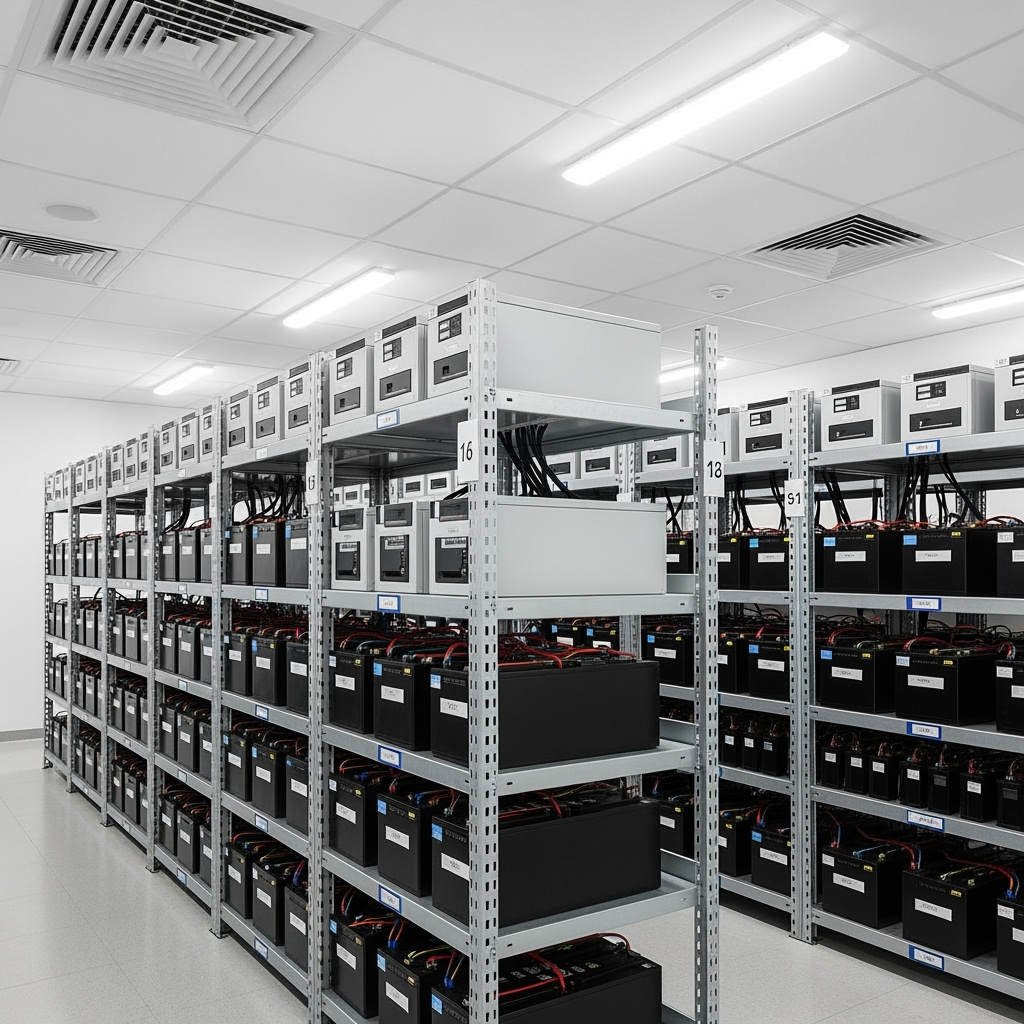
The Challenges of UPS Storage
UPS systems and their batteries face several storage challenges that can impact their reliability and lifespan:
- Temperature fluctuations that can degrade battery life
- Humidity concerns that may cause corrosion
- Dust accumulation affecting electronic components
- Space constraints in home office environments
- Safety considerations for battery storage
Climate-Controlled Storage Solutions
A climate-controlled storage environment is crucial for maintaining UPS systems and backup power equipment. The ideal storage conditions include:
- Temperature maintained between 68-77°F (20-25°C)
- Humidity levels kept between 45-55%
- Proper ventilation to prevent battery off-gassing
- Protection from direct sunlight
- Clean, dust-free environment
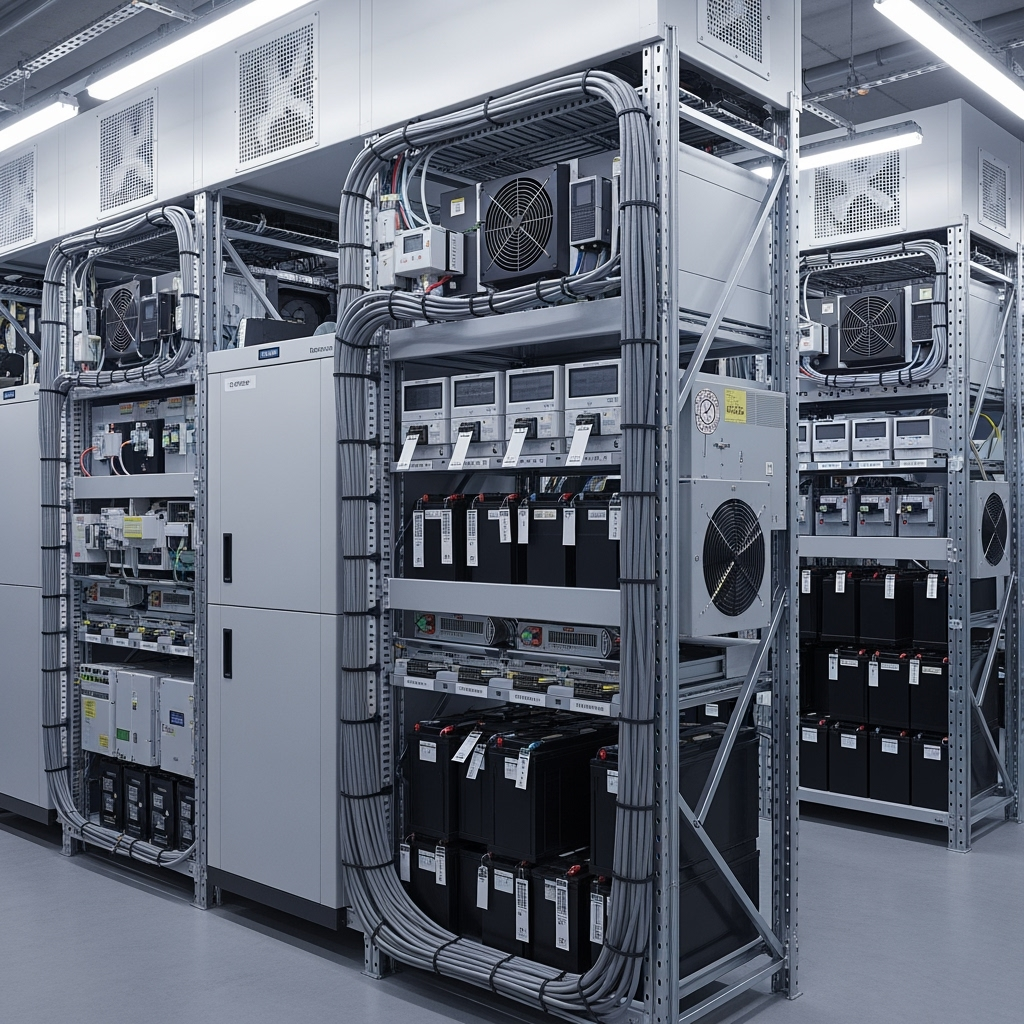
Organization Tips for UPS Storage
Follow these guidelines to keep your power backup equipment organized and accessible:
- Label all equipment with purchase dates and maintenance schedules
- Store batteries on sturdy, elevated shelving
- Keep power cables neatly bundled and labeled
- Maintain clear access paths to equipment
- Create a rotation schedule for battery testing and replacement
Safety Considerations
When storing UPS systems and backup power equipment, safety should be your top priority:
- Keep equipment away from water sources
- Ensure proper electrical grounding
- Maintain clearance around ventilation areas
- Store batteries in acid-resistant containers
- Keep fire suppression equipment nearby
Maintenance During Storage
Regular maintenance ensures your power backup equipment remains reliable:
- Perform monthly visual inspections
- Test batteries quarterly
- Clean equipment surfaces regularly
- Check and tighten connections
- Document all maintenance activities
Professional Storage Solutions
Consider these professional storage options for your power backup equipment:
- Climate-controlled storage units
- Dedicated equipment rooms
- Professional battery storage facilities
- Monitored storage environments
- Secure access storage locations
Emergency Access Planning
Create a plan for quick access to your stored UPS equipment:
- Maintain an inventory list with locations
- Create emergency contact procedures
- Document deployment protocols
- Keep essential tools readily available
- Practice equipment retrieval procedures
Conclusion
Proper storage of UPS systems and power backup equipment is crucial for maintaining business continuity in your remote work setup. By following these guidelines and utilizing climate-controlled storage solutions, you can ensure your power protection investments remain ready and reliable when you need them most.



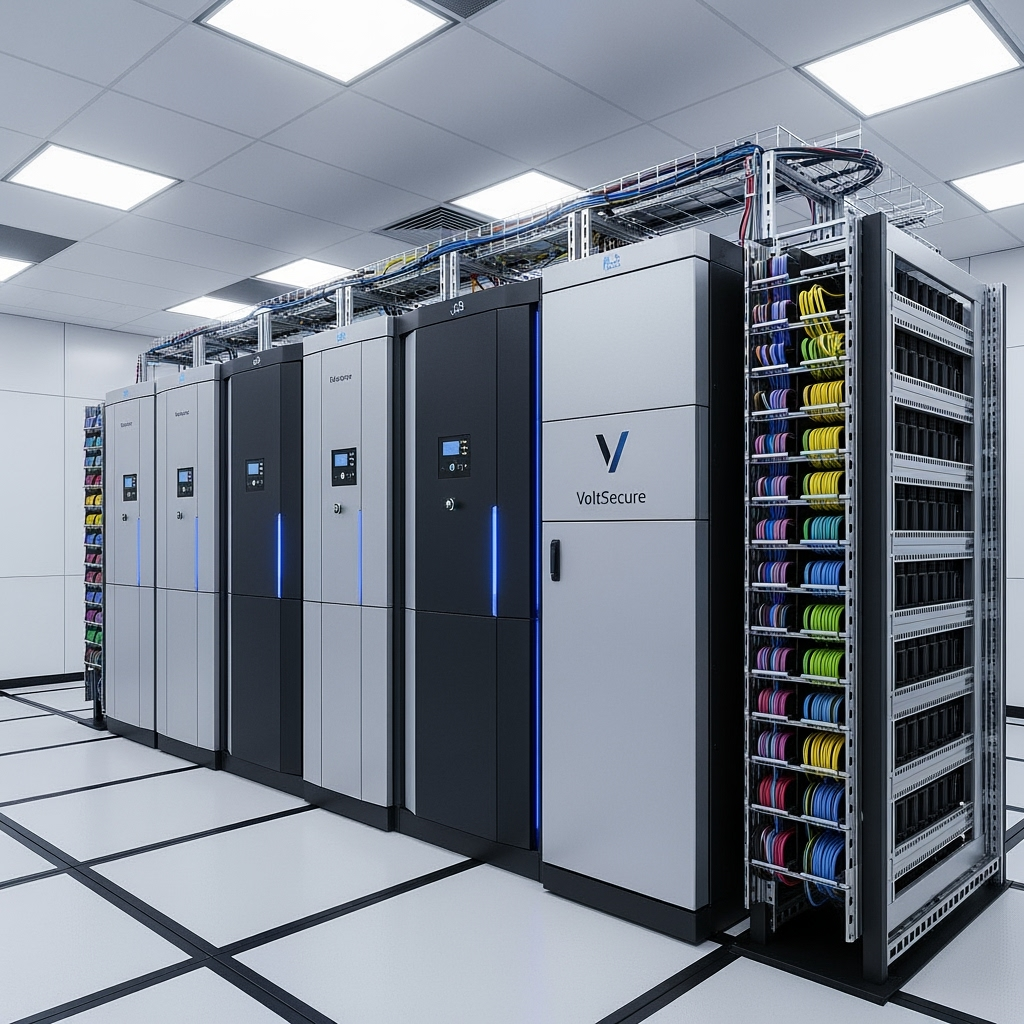
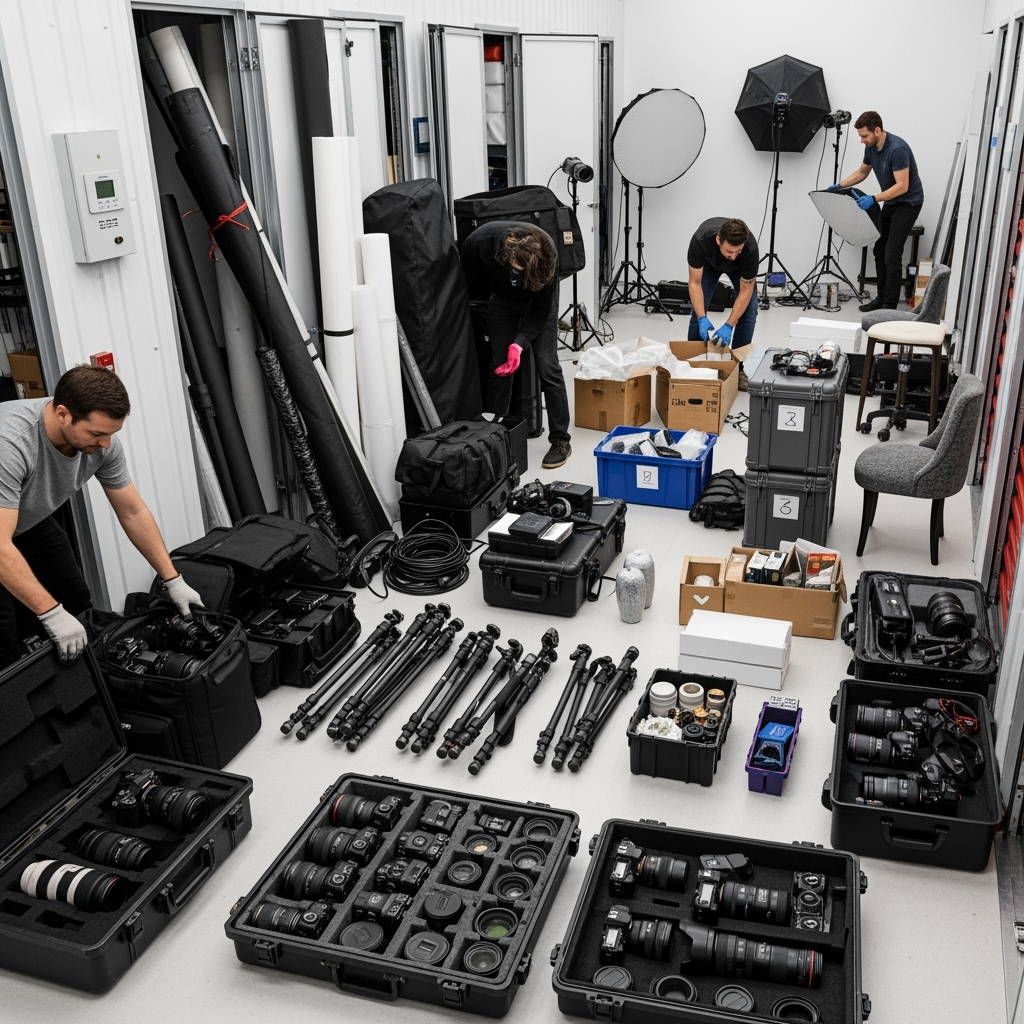
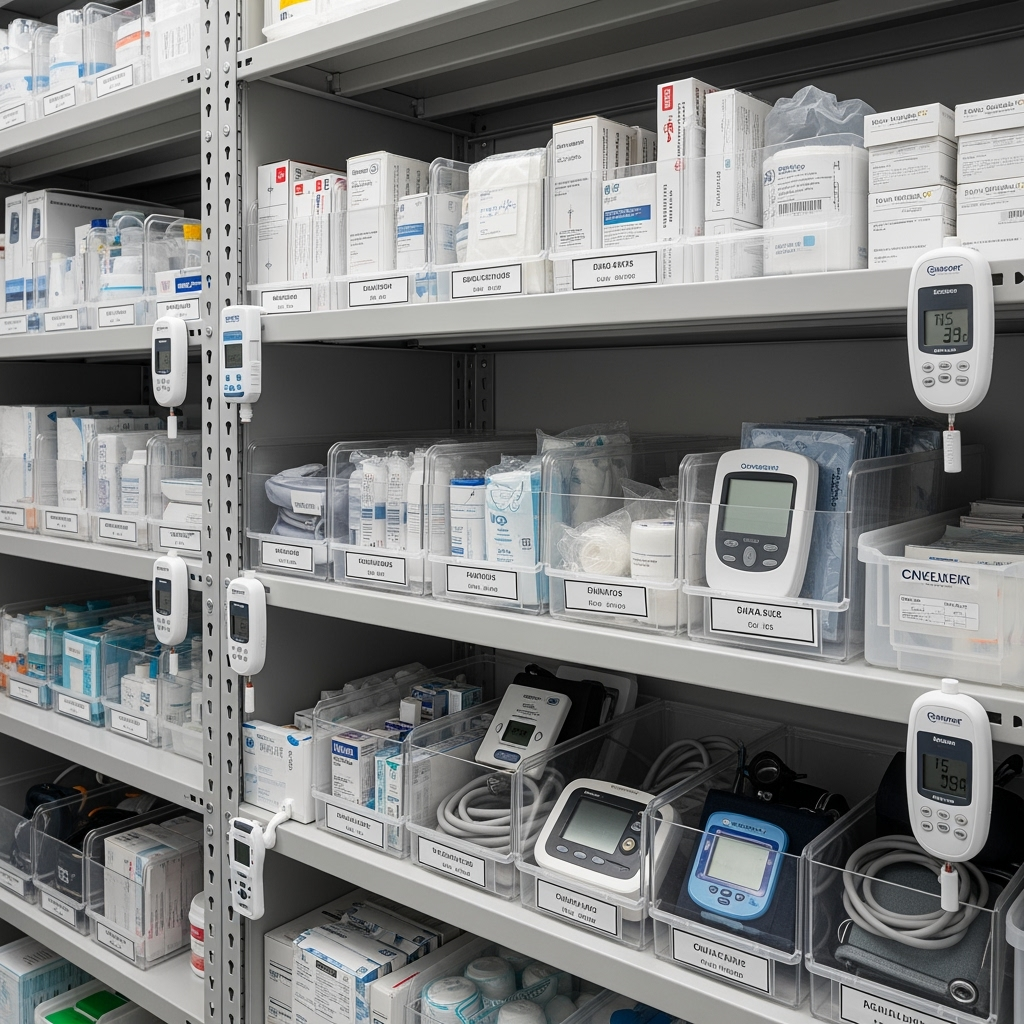
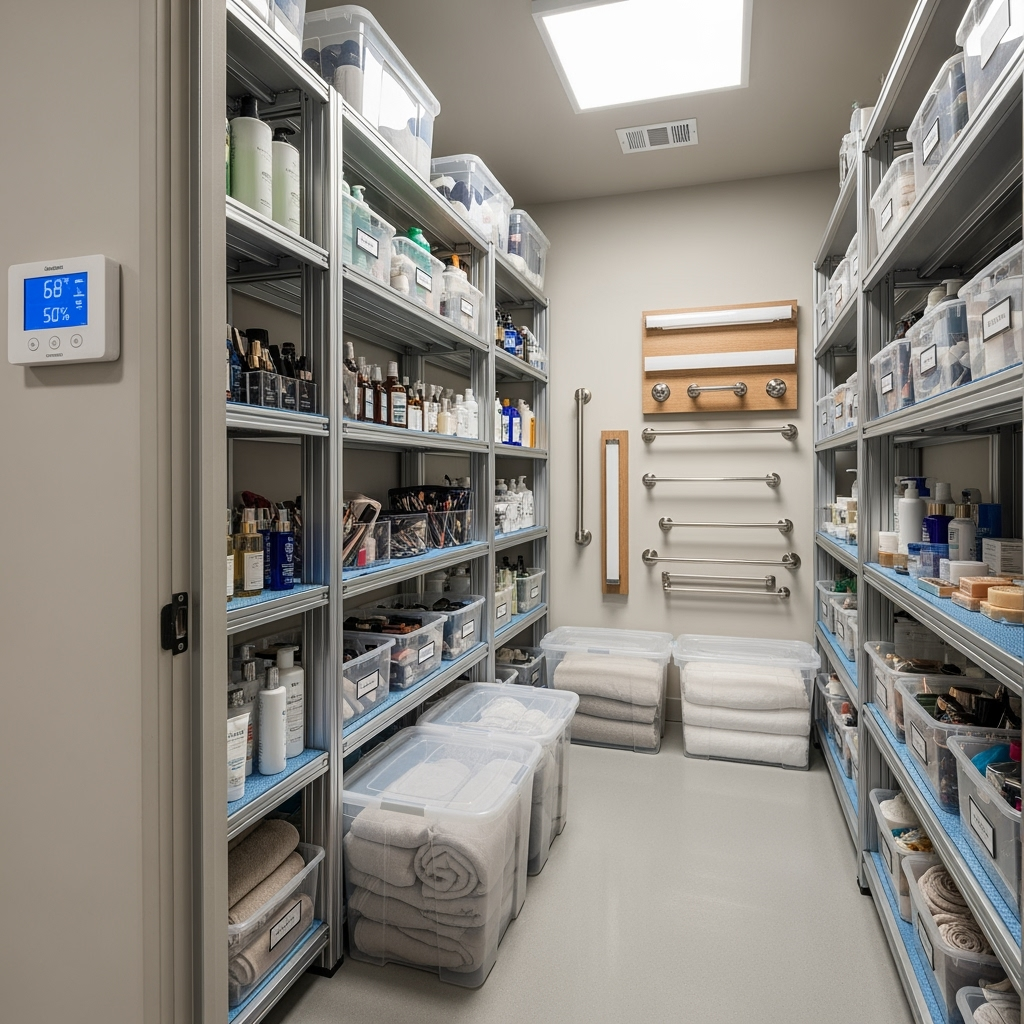
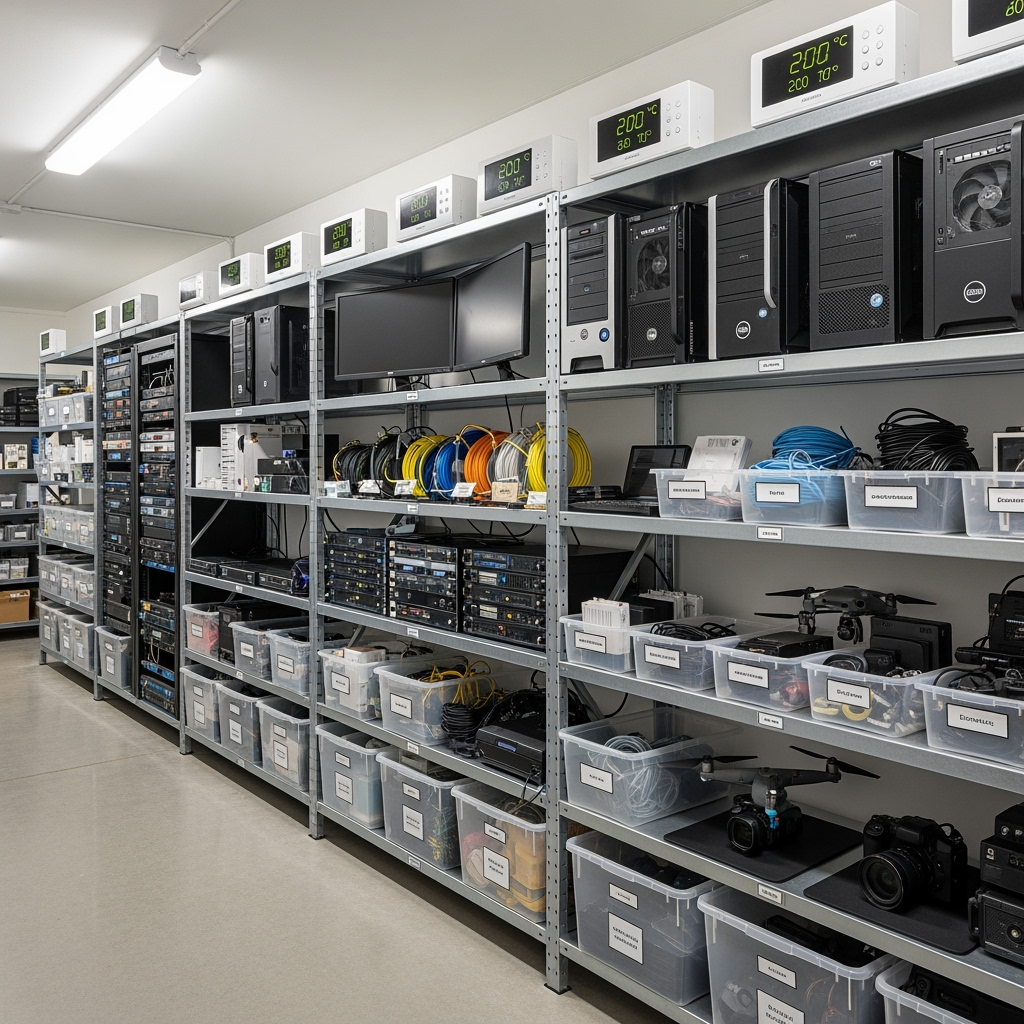

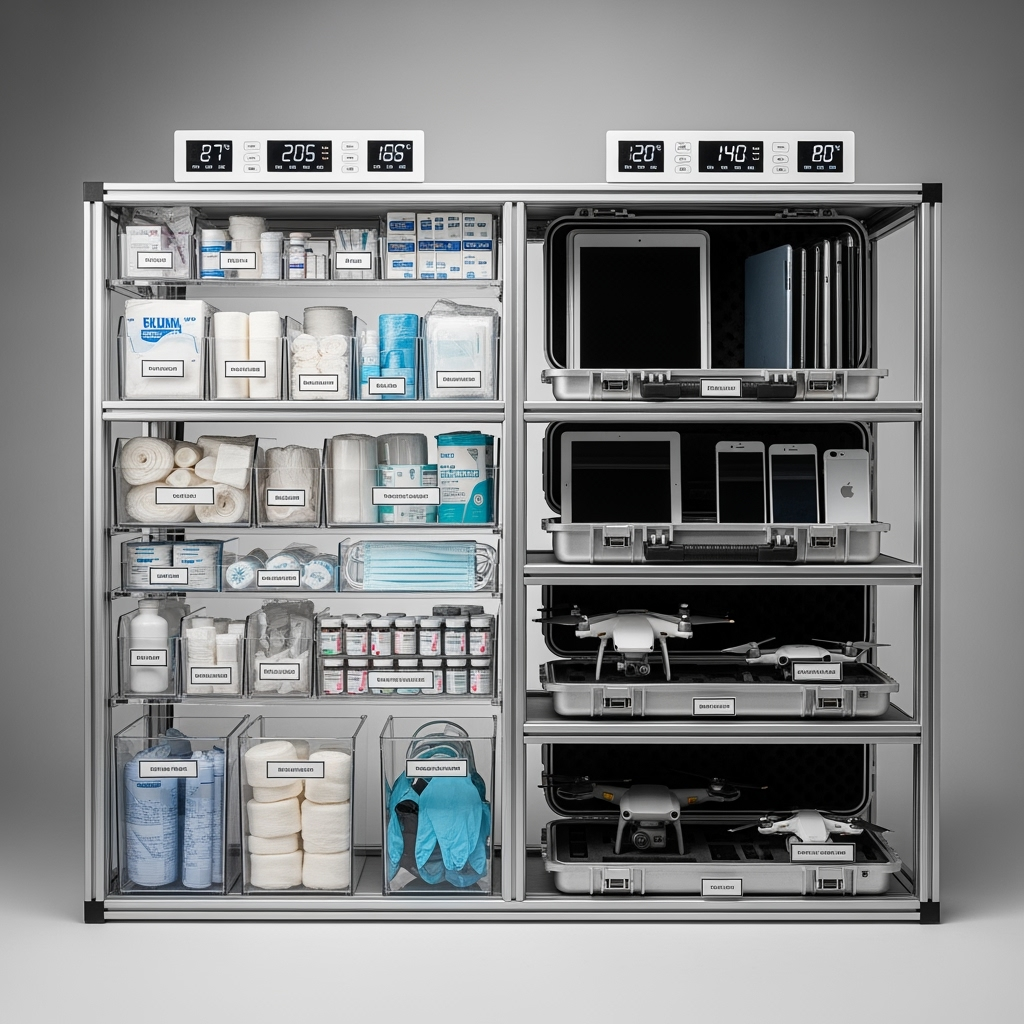
Leave a Reply